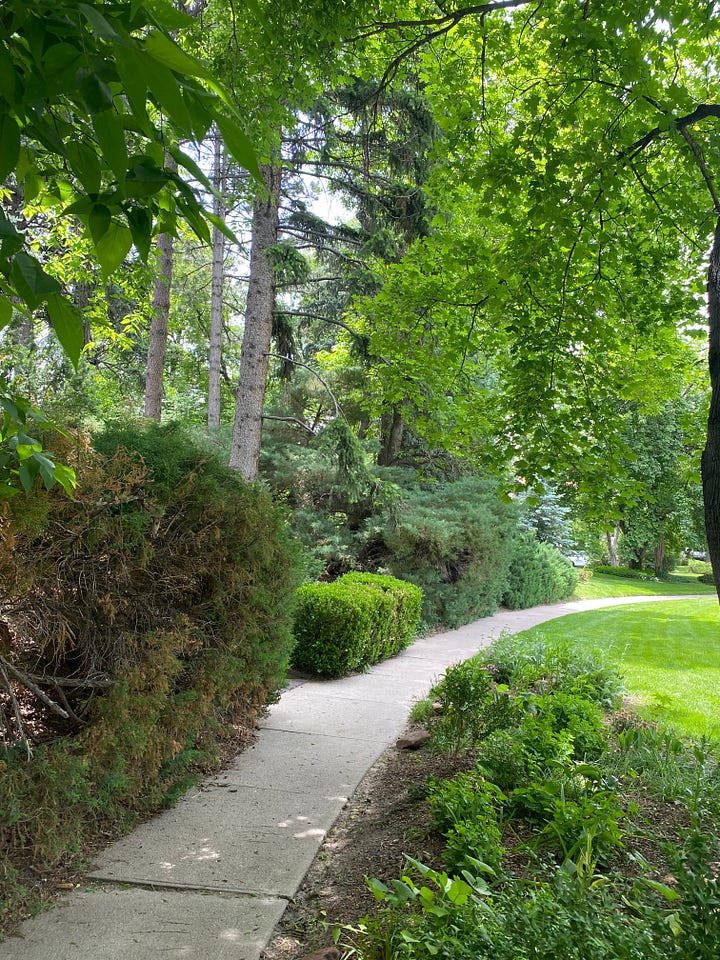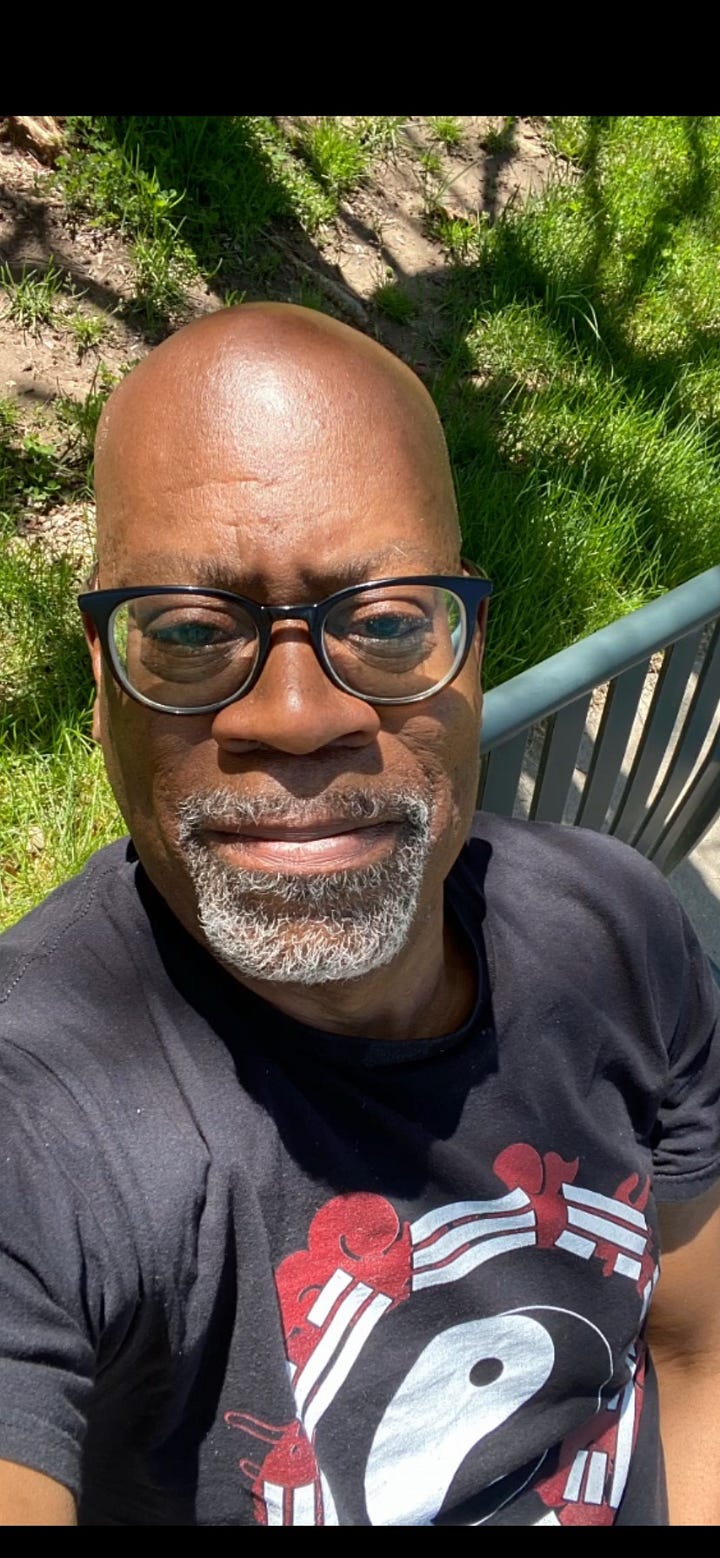

For me, life has felt like a profound travel adventure filled with a steady stream of interesting discoveries. As one who is forever curious about the existential elements of human nature, books have long been a vehicle for peeling back the onion of my lived experiences.
Many have asked about the fascination I’ve had with Taoism for a good part of my life. So on the eve of my 60th birthday, I thought I’d briefly share a few thoughts about this esoteric area of philosophical thought and the significance it has had on the person I’ve become.
My initial foray into Eastern Philosophy and eventually Taoism came by way of a book I read in the mid-nineties entitled Sacred Hoops: Sacred Lesson of a Hardwood Warrior. In it author and NBA Hall of Fame basketball coach Phil Jackson shares some uncommon wisdom about his two greatest passions — basketball and spirituality.
Through a roundball context, he talks about how he directed his players to act with a clear mind — not thinking, just doing; to respect the enemy and be aggressive without anger and violence; and to live in the moment and stay calmly focused in the midst of chaos, so that the “me” becomes the servant of the “we.”
In this excerpt from the book, he notes:
“In basketball —- as in life — true joy comes from being fully present in each and every moment, not just when things are going your way. Of course, it’s no accident that things are more likely to go your way when you stop worrying about whether you are going to win or lose and focus your full attention on what’s happening right in the moment.”
Jackson’s way of viewing the world became a catalyst for my own discoveries in the mid nineties after leaving an executive leadership role prior to the death of my mother. I found myself deeply resonating with his raw, no holds barred account of the inner recesses of his own life. Even though I was not consciously aware at the time of my Taoist proclivities, it is now abundantly clear to me that the philosophical underpinnings of how I now think stem from the early influences of this book.
In chapter 3, Jackson shares some thoughts about his early efforts to create his own personal amalgamation of spiritual beliefs involving Christianity and Buddhism. All of this, he says in the book, is rooted in the selflessness and compassion he learned during his upbringing as a Christian in his parents home, sitting on a cushion practicing Zen, and studying the teachings of the Lakota Sioux.
In a passage that became pivotal to my own exploration, he writes:
“What pollutes the mind in the Buddhist view is our desire to get life to conform to our peculiar notion of how things should be, as opposed to how they really are. In the course of everyday life, we spend the majority of our time immersed in self-centered thoughts. Why did this happen to me? What would make me feel better? If only I could make more money, win her heart, make my boss appreciate me. The thoughts themselves are not the problem; it’s our desperate clinging to them and our resistance to what’s actually happening that causes us so much anguish.”
Intrigued by the inner guidepost that he developed for his life, I decided to head down my own rabbit hole of spiritual discovery. In time, I eventually stumbled across Taoism, a close cousin to Buddhism
As a devoted student of Christianity and the Bible (I’ve read it twice, cover to cover), my early efforts at embracing Taoism became a bit of a inner conundrum as I began to compare, contrast and over-intellectualize the two.
It’s here where I appreciated Phil sharing about his own period of self-absorption in trying to figure where his new found curiosity around Zen Buddhism was taking him. Eventually, he says, he came to a point in his Zen practice where it became clear to him how thoughts can run your life, diminishing the power you have over them.
“When thoughts come up, the idea is not to try to blot them out or to analyze them, but simply to note them as they arise, and to experience, as fully as possible, the sensations in the body.”
Taoism in my experience reflects this narrative through deep immersion in what we Taoists call “The Way.” The aim of ‘Tao’ 道 (or Dao) is to allow oneself to flow with the natural rhythm and cadence of our world, embracing the interconnectedness of the Universe. As a non-religious philosophy void of strict dogma, it embraces the tenets of letting go, controlling only what we can realistically control in the moment. In other words, Taoism is about allowing life to naturally unfold in what I affectionately refer to as “its perfect Divine, infinite order.”
Unlike religion, Taoism seems to naturally align with my often mysterious and paradoxical existential journey. It has helped me realize that since my life is only a tiny morsel of sand in the vast desert of life, human existence only makes sense when I am in harmony with the broader expanse of nature.
One of the things that I have become acutely aware of during my time on this Earth plane is how rigidly polarized humanity has become. Our world, whether we are taking black or white; wealthy or poor; conservative or liberal; gay or straight; Christian or atheist has become muddled in polarities and distinctions that often serve to divide us.
On the other hand Taoism is reflected in the unity of opposites, what I affectionately refer to as an “AND” versus an “OR” mindset. This is evident in the well known Taoist symbol, the circle of yin and yang, which reflects the complementary and synergistic alignment of what we may perceive as otherwise opposing forces in the universe — light and dark, male and female, hot and cold.
The foundational text of Taoism is known as the “Tao Te Ching.” It is believed to have been written around the 6th century BC by Lao Tzu, an older contemporary of Confucius. A widely translated collection of aphoristic wisdom captured in 81 chapters, it explores lived experience themes like self-cultivation, leadership, modesty, and how to exist in accordance with nature. It offers the reader an opportunity to direct their thoughts inward as opposed to focusing on the outer world of attachments and entrapments.
I happen to be a fan of the Stephen Mitchell translation of the Tao Te Ching, finding it to be the most accessible to the average, everyday reader. One of the most translated books in history, it unpacks a lot of relevant wisdom to apply to one’s everyday experiences.
The book is divided up into eighty-one sections. Versus 1-37 are referred to The Tao section because Verse 1 begins with the word “Tao.” The remaining verses 38-81 are affectionately referred to as the Te section because verse 38 begins with the word Te. Ching was then added to the title, a word that means Ancient Text or Classic.
In its basic essence, the Tao Te Ching shows you “The Way,” by offering timeless wisdom on how to rhythmically flow with life. This is akin to how an exquisitely well-trained oarsman in a boat is able to navigate a river or sea with exquisite presence.
The Tao is about ensuring that your inner self (what I refer to as the inner game) is in alignment with the natural order of the universe (or outer game) so that you can live a truly authentic and rich life. In many ways this is akin to what world-class athletes describe as being “in the zone” —fully at one with life in a divinely orchestrated state of flow and concentration.
What I have discovered is that life is a mysterious and uncertain trek, a fragile ride where none of us knows what tomorrow holds. As Lao Tzu who is widely believed to be the author of the Tao Te Ching notes:
“A good traveler has no fixed plans, and is not intent on arriving.”
Having aimlessly wandered the roads of life, my greatest hope is that you, like me, will find a profound sense of perspective in the Taoist-inspired mystery as it speaks to the unfolding ecstasy of your highest desires. As my Taoist mentor Casey Kotchmer once shared with me in one of our many sessions over the years by phone…
…..“I’m not here for you to trust me. Rather I’m here to help you trust yourself.”
I offer this same invitation to you as a fellow traveler seeking to navigate your own lived experience. My sincere hope is that you’ll find success in discovering your own inner foundation to a meaningful, well-lived life.
An Invitation From Diamond-Michael Scott:
“Great Books, Great Minds” is my full-time work and life passion, a labor of love fueled by the endless hours of work I put into researching and writing these feature pieces. So if you enjoy this digital newsletter, find it valuable, and savor world-class book experiences featuring epic authors and book evangelists, then please consider becoming a paid supporting member at $6.00 a month or $60.00/year.





somewhere I have a signed copy of this book (and it's around the same time I discovered Taoism). I was working at a giant Barnes & Noble in the Chicago area when it launched, and as you might imagine, the signing was an EVENT!!